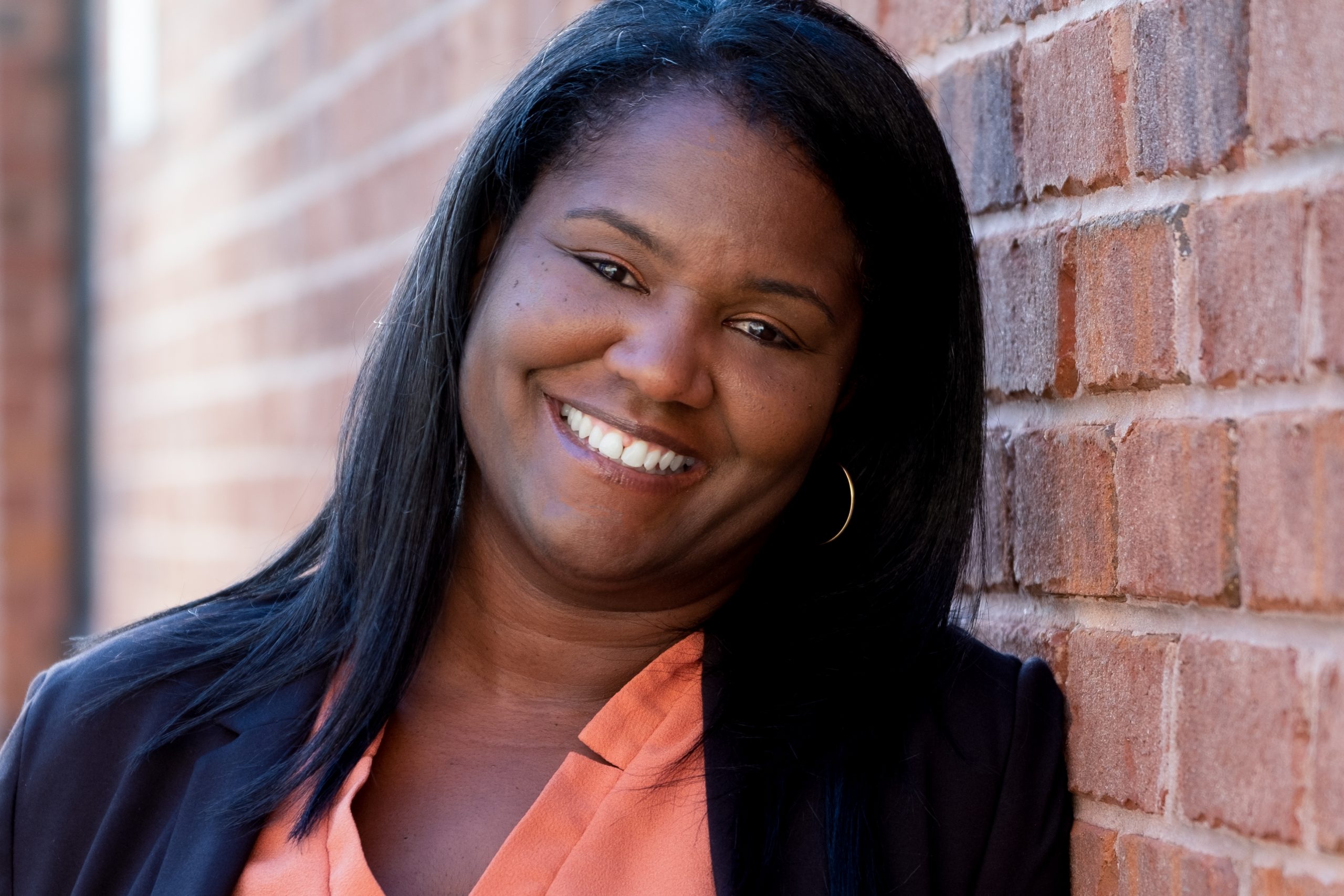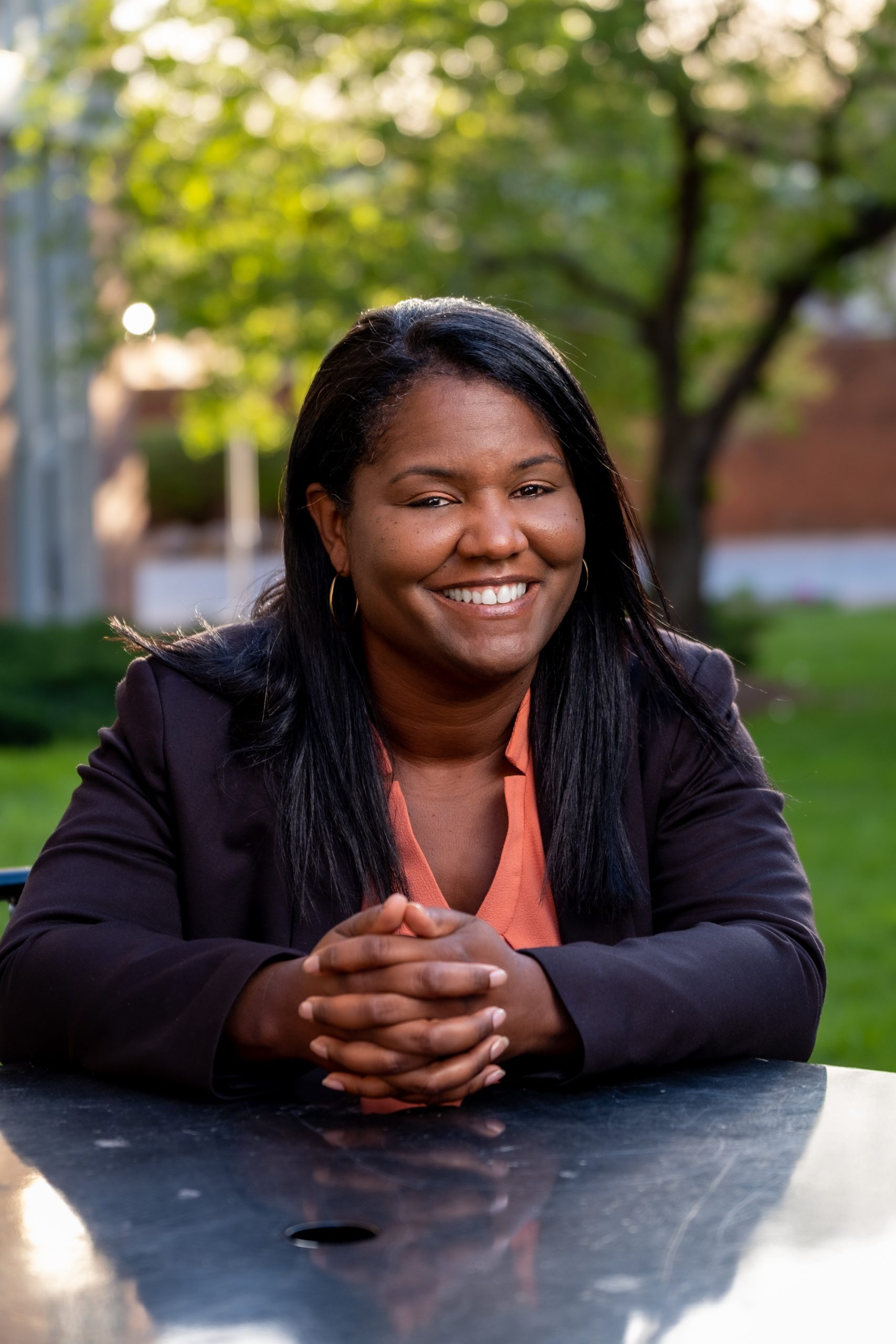Inaugural 2022 AAPA Diversity Award Recipient Advocates for Faculty and Students of Color
Shani Fleming is an Educator, Scholar, and Volunteer Leader
May 18, 2022
By Katy Shenk

When she attended George Washington University’s PA program in the early 2000s, Shani Fleming, MS, MPH, PA-C, the 2022 recipient of the inaugural AAPA Diversity Award, was the only student of color in her PA student cohort. This experience, and a passion for increasing minority representation in the PA profession, fuels her commitment to go above and beyond for other students and faculty of color as an educator and dedicated volunteer.
The Diversity Award honors a PA or PA group that serves as a champion of diversity, equity, and inclusion (DEI) within the PA profession and/or the patient population or community that they serve.
Fleming engages in this work daily as an associate professor at the University of Maryland, Baltimore PA program, where she also serves as the Graduate School’s chief equity, diversity, and inclusion officer. In this role, she provides strategic guidance to ensure the graduate school has structures in place to provide safe spaces and foster an inclusive environment for students from all backgrounds. Fleming is also on the Executive Team of PALLA (PA Leadership and Learning Academy), where she serves as a subject matter expert for PA education and faculty development.
As a professor, Fleming has developed PA program curriculum focused on social determinants of health, public health, implicit bias, and LGBTQ health. She has also designed and led trainings, workshops, and professional development activities for clinicians, faculty, and staff.
“I have spent my career educating on cultural humility, discussing health disparities, and encouraging students to prioritize social determinants of the health of our patients,” Fleming says. “The two most rewarding parts of my career as a PA have been, first, the network of faculty of color promoting leadership, scholarship, and mentorship. And second, recruiting and advocating for the admission of so many students of color into the PA profession.”

Outside of her work, Fleming is an active volunteer with PAEA, where she has been instrumental in making diversity a priority in the organization’s strategic plan. She is the past chair of the Diversity and Inclusion Membership Advancement Committee (DIMAC), a body which works to advance national DEI efforts in PA education and, recently, helps PA programs meet the new ARC-PA Standard on Diversity and Inclusion.
As committee chair, Fleming helped develop a DEI toolkit, best practices documents, and led guided sessions for PA educators on how to implement these tenants in their work. As an additional resource for faculty of color, Fleming founded the PAEA Minority Faculty Special Interest Group – which has over 100 PA faculty members – that meets quarterly to share their experiences as educators and develop approaches to encourage minority representation in PA education.
Increasing the profession’s diversity starts with middle and high school students, and Fleming’s work to revamp Project Access, a program where PAs volunteer to give presentations at schools and other community organizations to encourage underrepresented minority students to consider a PA career, reflects her commitment to diversifying the profession within and beyond post-secondary educational institutions.
Fleming’s scholarship, too, is aligned with her advocacy for inclusive PA education. A PhD candidate in Language, Literacy, and Culture, her dissertation explores the impact of the entry-level doctorate on the diversity of the PA profession. In 2021, she was awarded the $50,000 PAEA Faculty-Generated Research Grant for her proposal to build a Telehealth Center of Excellence for clinical education and coordinate site management among four participating Maryland PA programs. The project will evaluate telehealth clinical training experiences and their impact on the diversity of preceptors and learning experiences.
With over 18 years of clinical experience as a PA in primary care in addition to her work in higher education, Fleming says the most rewarding part about being a PA is “the flexibility and reach of the PA profession. We can do it all!”
In both clinical practice and higher education, Fleming is adamant that representation matters. “The PA profession is perfectly positioned to be a critical solution to ongoing healthcare crises,” she says, “and we can be a model for other health professions to increase BIPOC representation consistent with the patient population.”
Thank you for reading AAPA’s News Central
You have 2 articles left this month. Create a free account to read more stories, or become a member for more access to exclusive benefits! Already have an account? Log in.



